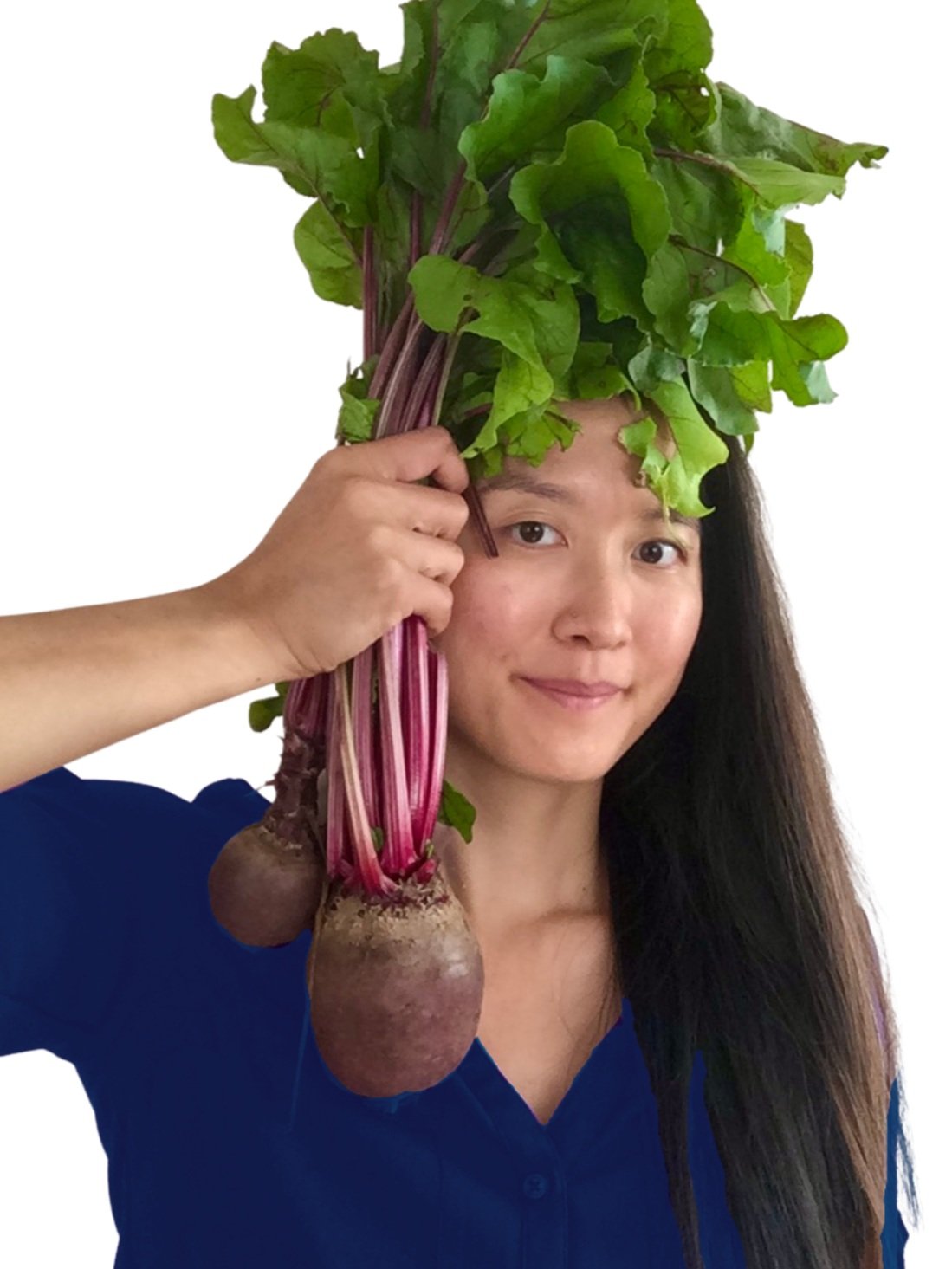Body Positivity: A Journey towards Embracing Self-Acceptance & Challenging Fatphobia
Hello! My name is Meredith and I am an anti-diet Registered Dietitian Nutritionist here at Sunrise Nutrition. I provide compassionate, size-inclusive care for adults and adolescents seeking to reconnect with food in a positive way.
The body positivity movement has been gaining momentum in recent years, once again opening up a much-needed conversation about fatphobia, racism, and oppression. Advertisements, social media, the fashion industry, movies and TV shows, sports/athletics, healthcare - We are surrounded by content, protocols, and recommendations that promote negative body image and diet culture. This constant bombardment of “you’re not good enough” messages contributes to low self-esteem and a poor relationship with food and body. Body positivity promotes self-acceptance and the idea that all bodies are good bodies and have value, regardless of their shape, size, or appearance. It is a response to the negative impact of diet culture and the unrealistic beauty standards that have been imposed on society. Body positivity aims to counteract the harmful effects of negative body image and foster diversity and inclusion. Body liberation takes this a step further, with the ultimate goal being freedom from the systemic oppression that deems some bodies as more worthy, healthy, and attractive than others.
Origins of the Body Positivity Movement
Before talking about strategies to embrace body positivity, let’s first acknowledge that this recently popularized movement has a complex history, which often disregards the struggles and activism of fat folks of color, especially fat Black women.
The most documented accounts of fat activism can be traced back to the late 1960’s and early 1970’s, at the intersection of women’s liberation and Black Civil Rights. In 1967, 500 people gathered in Central Park in New York City for a “fat-in” to protest bias towards fat people. Not long after, Bill Fabrey and Lew Louderback founded The National Association to Advance Fat Acceptance (NAAFA) in response to discrimination towards their wives - both fat, white women. The Fat Underground was founded by Judy Freespirit and Sara Fishman as a more radical and feminist chapter of the NAAFA, and eventually became a separate group entirely. The NAAFA and The Fat Underground played an important role in driving the body liberation movement at the time and they helped pave the way for the modern day body positivity movement.
Within and outside of these groups, women of color were working hard to make their voices heard, including Johnnie Tillmon, a powerful force at the head of the welfare rights movement who said: “I’m a woman. I’m a Black woman. I’m a poor woman. I’m a fat woman. I’m a middle-aged woman. In this country, if you’re any one of those things you count less as a human being.” Sadly, even with powerful words and actions like Tillmon’s, people of color still did not receive the recognition they deserved. We must face the fact that, with white women at the forefront of the prominent NAAFA and The Fat Underground, the visibility of women of color, especially darker-skinned fat Black women, continued to be suppressed.
Fast-forward to the present day. The very term “body positivity” has been co-opted by the mainstream, leaving the past and present contributions and struggles of people of color in larger bodies out of the conversation. Body positivity begins at the individual level and body liberation extends beyond to address systemic social and political oppression.
Negative Impact of Fatphobia and Body Shaming
Diet culture perpetuates the idea that thinness is the only acceptable body size and that all other bodies are inferior. This diet craze and overemphasis on body shape, size, and appearance has led to a societal obsession with weight loss and an unhealthy relationship with food. Fatphobia and body shaming can have devastating effects on physical health (restriction, binge eating, metabolic disturbances, etc.) and mental health (anxiety, depression, self-esteem, etc.). As mentioned above, this is especially true for marginalized communities, such as people of color and the LGBTQ+ community, who often face additional layers of oppression and may be subjected to more intense body shaming.
How Can Body Positivity Help with Relationship with Food and Body Image?
Body positivity can help with our relationship with food and body image in a several ways:
Reduces negative self-talk: By simply changing the way we talk about our bodies, we might feel more empowered to engage in activities that previously felt out of reach.
Promotes nourishing and revitalizing self-care habits: Body positivity encourages individuals to engage in joyful movement and Intuitive Eating, rather than restrictive diets. As we focus more on nourishing our bodies and taking care of ourselves, we may experience improved mood and energy, which can help us find greater joy in our lives.
Reduces anxiety and stress: By promoting self-love and acceptance, body positivity helps to reduce anxiety and stress that may stem from negative body image. We can feel more at ease with our food choices when we are no longer criticizing our bodies.
Steps to Help with Body Positivity
The journey to body positivity looks different for each individual. For some, body positivity might not yet be an achievable goal. That is okay. Body positivity is what you make it. These are a few steps that might help you to work towards a more positive relationship with your body:
Practice self-care & self-compassion: Start by speaking kindly to yourself and treating yourself with the same compassion you would show to a dear friend. Identify one thing about your body that you like - your hair, your smile, your eyes. Try looking in the mirror and giving yourself a compliment!
Surround yourself with positive influences: Seek out people, media, and social media accounts that promote body positivity and self-love.
Challenge and reframe negative self-talk: When negative thoughts about your body arise, challenge them with positive affirmations and self-compassion. A common negative thought folks have about their bodies is: “I need to lose weight!” This could be reframed as: “According to whom and why? What I do need to do is nourish my body and treat my body with respect because that is what I deserve.”
Celebrate your body’s abilities: Focus on what your body can do and the things you enjoy doing. Something as simple as your body’s ability to carry out everyday tasks, such as moving, breathing, and feeling can help shift your perspective. This creates a foundation of self-acceptance, leading to greater body positivity over time.
Move away from comparing yourself to others: Remember that everyone's journey is unique, and that comparing yourself to others is not productive.
Release yourself from the burden of having to make personal changes to achieve body liberation: If you are a person of color and specifically a woman of color, unpacking personal body issues is even more complex. True body liberation cannot happen for black and brown bodies without much-needed systemic reform.
Seek professional help: If you are struggling with negative body image, consider speaking to a weight-inclusive therapist or dietitian/nutritionist who can help you work through these thoughts and feelings.
Body positivity and body liberation are cornerstones of self-care and mental health. By rejecting diet culture and fatphobia, embracing body diversity, and celebrating self-acceptance, we can work towards a more inclusive and equitable society. This also involves dismantling the systems of oppression that continue to intercept the personal strides we may be taking to destigmatize fatness and appreciate and love the bodies we live in. We cannot truly have liberation of all bodies if we have not achieved liberation of marginalized bodies.
Practicing self-compassion in the form of body positivity can help reduce guilt and shame around food; it also encourages us to respond to internal hunger/fullness cues, and allows us to establish or rebuild the enjoyment in eating that we deserve. Remember, your worth is not determined by your body size, shape, or appearance. We are all deserving of body liberation.
For body image counseling, reach out to us by completing our Get Started form.
Meredith LaFrance, RDN, CD is a dietitian based out of Seattle, WA. She specializes in the treatment of eating disorders, disordered eating and chronic dieting and relationship with food concerns.
References
Admin. (2022, May 29). The black, femme history of the body positive & fat liberation movement. The Joy Project. Retrieved February 15, 2023, from https://www.joyproject.org/the-black-femme-history-of-the-body-positive-fat-liberation-movement/
Johnson, R. (2021, May 3). Has the body positivity movement forgotten its roots? Untitled. Retrieved February 15, 2023, from https://untitled-magazine.com/has-the-body-positivity-movement-forgotten-its-roots/
Fishman, S. (1998). Life in the fat underground. Radiance: The Magazine for Large Women. Retrieved February 15, 2023, from http://www.radiancemagazine.com/issues/1998/winter_98/fat_underground.html
Gerhardt, L. (n.d.) The rebellious history of the fat acceptance movement. Center for Discovery Eating Disorder Treatment. Retrieved February 15, 2023, from https://centerfordiscovery.com/blog/fat-acceptance-movement/#:~:text=Or%2C%20rather%2C%20a%20%E2%80%9Cfat,loudly%20fat%20without%20being%20apologetic.
Jennings, D. (2018, September 18). Black women started the body positivity movement, but white women corrupted it. HelloBeautiful. Retrieved February 15, 2023, from https://hellobeautiful.com/3009432/black-women-body-positivity-movement/
Martin, M. (2021, February 18). The whitewashed, diluted reality of modern body positivity: The important black history of the body positivity movement. The Ohio State University. Retrieved February 15, 2023, from https://u.osu.edu/studentwellnesscenter/2021/02/18/the-whitewashed-diluted-reality-of-modern-body-positivity-the-important-black-history-of-the-body-positivity-movement/
Miller, K. (2020, June 21). How whiteness killed the body positive movement. Medium. Retrieved February 15, 2023, from https://elemental.medium.com/how-whiteness-killed-the-body-positive-movement-4c185773101e
Nijjar, T. (2021, November 26). The forgotten origins of the body positivity movement. Waterloo-Wellington Eating Disorders Coalition (WWEDC). Retrieved February 15, 2023, from http://www.eatingdisorderscoalition.ca/blog/2021/11/26/the-forgotten-origins-of-the-body-positivity-movement
Springs, S. (2020, July 21). Fat phobia and its racist past and present. Short Wave; NPR. Retrieved February 15, 2023, from https://www.npr.org/transcripts/893006538




